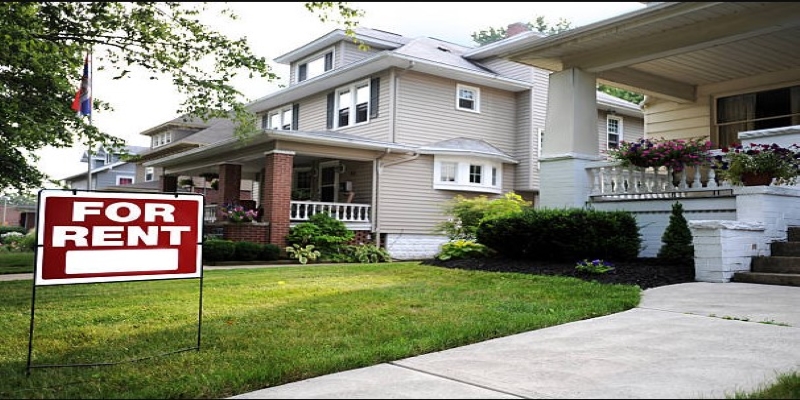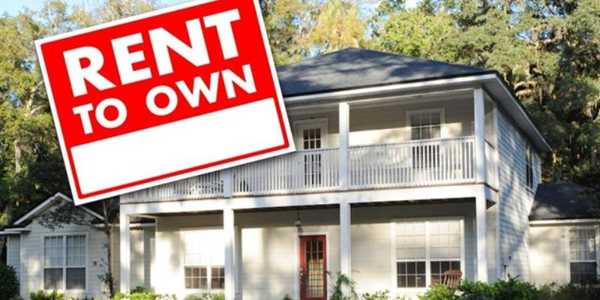
Buying Vs. Renting A Home: Pros And Cons You Need To Know
Tooba
When deciding whether to buy or rent a home, several important factors must be considered. For many, the decision hinges on personal circumstances, financial goals, and lifestyle preferences. While both options have their benefits, each comes with its own set of challenges. Understanding the pros and cons of buying versus renting can help clarify which option is best for you.
Pros Of Buying A Home
Building Equity And Investment Potential
One of the main advantages of buying a home is the opportunity to build equity. Unlike renting, where you pay rent to a landlord without gaining ownership, buying a property means your monthly payments contribute to your ownership stake in the property. Over time, as you pay down your mortgage, your equity in the home increases. Additionally, if the property value appreciates, your investment grows, providing the potential for significant financial returns when you decide to sell.
For many, the idea of owning a home is appealing because it offers long-term financial stability. A home is a tangible asset, and if managed well, it can become a powerful part of your overall wealth-building strategy. Buying a home also means you’re not subject to rent hikes or the instability that can come with changing rental markets.
Stability And Control
Owning a home gives you a sense of stability that renting may not offer. As a homeowner, you are not subject to the whims of a landlord, whether that involves sudden rent increases or the possibility of being asked to move out. This stability is particularly appealing for families or individuals who want to put down roots in a particular community.

Furthermore, owning a home gives you full control over the space. You can make any changes or improvements to the property without needing approval from a landlord. Whether it’s remodeling the kitchen, installing a pool, or simply painting the walls, homeowners have the freedom to customize their homes to their liking.
Potential Tax Benefits
In many countries, owning a home can offer certain tax advantages. For example, mortgage interest payments and property taxes may be deductible from your income tax. These deductions can make homeownership more affordable over time and offer financial relief for homeowners, especially in the early years of a mortgage when the interest portion of your payments is typically higher.
Long-Term Financial Security
Buying a home can be seen as a long-term investment that provides financial security for the future. Once your mortgage is paid off, you’ll own your property outright, which can be a valuable asset in retirement. Without the burden of a monthly rent or mortgage payment, you can have more financial freedom and security later in life. Additionally, homeowners may benefit from the appreciation of their property, potentially increasing their wealth over time.
Cons Of Buying A Home
High Upfront Costs
While the long-term benefits of buying a home are clear, the initial costs can be a significant barrier. A down payment is often required when purchasing a home, which can be a hefty sum, particularly in expensive markets. On top of this, there are closing costs, home inspection fees, and other expenses that come with securing a mortgage. For first-time homebuyers, these costs can be overwhelming and may require taking on debt to cover them.

Ongoing Maintenance And Repairs
When you own a home, you are responsible for all the maintenance and repairs. This means paying for everything from fixing a leaky roof to replacing appliances or addressing plumbing issues. While a home warranty or insurance can sometimes cover these expenses, many repairs fall on the homeowner. Over time, these costs can add up, and unexpected repairs can become a financial burden, particularly if the home is older or in need of significant updates.
Less Flexibility
One of the significant downsides to buying a home is the lack of flexibility. Once you commit to a property, it can be difficult to move quickly if your circumstances change. Whether it’s a new job in another city or a change in your family situation, selling a home can be a long, costly process. Homeowners may face difficulties if the housing market is slow or if they owe more on their mortgage than the property is worth.

Additionally, buying a home entails a significant commitment of financial resources, including the down payment and mortgage payments. This can make it harder to move freely or pursue other opportunities, especially for younger individuals or people in transitional phases of life.
Market Risk
The real estate market can be unpredictable, and property values can fluctuate over time. While many people see their homes appreciate, there are also periods when the market declines, such as during economic downturns. If you buy a home and its value decreases, you could find yourself "underwater" on your mortgage—meaning you owe more than the home is worth. This situation can make selling or refinancing the property more difficult and may leave you financially strained if you need to move.
Pros Of Renting A Home

Lower Initial Costs
One of the primary advantages of renting a home is the lower upfront costs. Renters generally do not need to come up with a large down payment, nor do they need to worry about closing costs or paying property taxes. Instead, tenants typically pay a security deposit and the first month's rent. This makes renting a more accessible option for those who do not have the financial resources to purchase a home.
Renting can also be a good option for people who are new to a city or are uncertain about their long-term plans. Without the significant financial commitment of homeownership, renters can move relatively easily if their circumstances change.
Maintenance-Free Living
Another benefit of renting is the landlord generally handles the maintenance and repairs. If something breaks or needs attention, renters can simply call their landlord or property management company to take care of the issue. This can be a huge relief, as it eliminates the need to spend time and money on repairs. For people who do not have the skills or desire to deal with home maintenance, renting can be an attractive option.

Flexibility
Renting offers much more flexibility than owning a home. Renters are not tied down by the long-term commitment of a mortgage or the difficulty of selling a home. If your job requires you to relocate or your personal situation changes, you can often move with relatively little hassle. Many rental agreements are for one year, and once the lease ends, you can choose to move without the long wait times or financial risks associated with selling a home.
No Market Risk
Unlike homeowners, renters are not exposed to the risks of a fluctuating housing market. If property values drop, renters will not lose money on the value of their living space. This can be particularly appealing during periods of economic instability or when the real estate market is experiencing a downturn. Renters can simply wait out a market slump without worrying about losing their investment.
Cons Of Renting A Home
No Equity Or Investment Growth
The most significant disadvantage of renting is the lack of equity growth. Rent payments do not contribute to owning an asset; they are simply an ongoing expense. While renting may be cheaper in the short term, renters do not gain the potential financial benefits of owning a home, such as building equity or benefiting from property appreciation.
Renting may not be the best option for those who want to build long-term wealth through real estate.
Limited Control Over The Property
When renting, you are at the mercy of your landlord’s rules and regulations. While homeowners have the freedom to remodel or redecorate as they please, renters are often limited in terms of what changes they can make to their living space. Most rental agreements prohibit tenants from making significant alterations, such as painting walls or renovating the kitchen. This can leave renters feeling less at home in the space, especially if they have specific preferences or want to personalize their environment.
Rent Increases
Renting comes with the risk of rent increases. Depending on the rental market and the landlord’s policies, tenants may face higher rent when their lease is up for renewal. This can create financial uncertainty, as renters may not know what their future rental payments will look like. In some cities, rent increases are regulated, but in many others, they are subject to market conditions and the landlord’s discretion.
Stability Concerns
Renters may not enjoy the same level of stability as homeowners. Landlords can decide not to renew leases or may sell the property, forcing tenants to move. This lack of control over your living situation can be unsettling, particularly if you have a family or have lived in the same place for a long time. The possibility of being asked to leave without warning is a unique risk of renting.
Conclusion
Whether buying or renting a home is the better choice depends on your financial situation, lifestyle preferences, and long-term goals. Buying a home offers the benefits of building equity, stability, and potential investment growth, but it comes with high upfront costs and ongoing responsibilities. Renting, on the other hand, provides flexibility, lower initial costs, and fewer maintenance worries, but it does not offer the opportunity to build equity or secure long-term financial growth. Ultimately, the decision should be made based on your circumstances and what you value most in your living situation.




